Helsinki University in Cooperation with Århus University (Hagen Schulz-Forberg)
sponsored by Helsinki University/Faculty of World Cultures/CENS, KONE Foundation, Riksbankens Jubileumsfond (RJ), the Max Planck Institut für Bildungsforschung, Berlin, and Århus University 2008-2014. The project continued through Bo Stråth’s research without direct sponsoring 2014-2024 but with several personal fellowships for Stråth at the Stellenbosch Institute for Advanced Studies (STIAS) for pursuing the research within this project.
The beginning
Bo Stråth initiated the project in 2007-2008 at Helsinki University with a seminar series in the framework of his Finish Academy Distinguished Chair in Nordic, European and World History, Helsinki Research Seminars: The Past and the Future: Europe’s Ordering the World and Towards a Planetary Perspective for the World.: The intellectual ground had been prepared at his final conference at the European University Institute in May 2007: “Towards a Global History: A New History Beyond the Cultural Turn and with a Master Narrative without a Cause and a Centre.” The backdrop of the initiative was the globalization narrative about a self-propelling world market without borders. Its status at this time was hegemonic just before its rapid loss of credibility in the wake of the bursting speculation bubble and the collapse of the world’s financial markets in 2008. Critical reflection promoted the search for a new conceptualization of the world with emphasis on the human capacity to act and politically manage what was argued to be self-propelling. It was a search for a language with a social dimension and with a conceptualization of labour as a human force in all its contradictions and oppositions, as opposed to being a commodity on a market. And it was a search for an alternative to Eurocentrism that permeated the language of globalization.
In the spring of 2008, the project became a joint venture with Hagen Schulz-Forberg, Århus University. A conference was prepared at a meeting in Skagen in June, and a seminar in Helsinki in August. It was held in Helsinki in October 2008 with European and Asian conceptual historians and historians who wanted to learn more about conceptual history as an approach to Eurasian history. At the project’s outset and the conference, the focus was on the social and economic aspects of translations between European and Asian languages. The theme was further explored at the Bangkok, Berlin, and Damascus conferences. As a result of these meetings, a collected volume was published: Hagen Schulz-Forberg (ed), A Global Conceptual History of Asia 2014. An account of the status of the project in 2012 with photos from the meetings follows here: Provincializing for a Planetary Perspective and Global Translations: The Euro-Asian and -African Semantics of the Social and the Economic, Conceptual Histories of the World and Global Translations, which also outlines the zeitgeist when the project was elaborated and gives more details about this work.
Looking backwards in 2023 to the project’s start in 2008. The emergence of a heuristic framework
For over a decade, the world has experienced an accelerating erosion of a language that took hundreds of years to emerge. It is a language ordering time and space with words, such as enlightenment, reason, rationality, modernization, and the most recent by-word, globalization. However, it is a language accompanied by colonialism, imperialism, racism, the exploitation of people and nature, unequal distribution of the world’s resources, pogroms, genocides, and world wars. There has been a gap between assumptions underlying a visionary ambition and the often-brutal practices accompanying it. Moreover, it is a language that expresses European values, with the implicit or explicit suggestion that they pertain to the whole world, a civilizing mission from a European centre. Although the established narrative argued that there was continuous progress, it was a conclusion reached through hindsight. The idea of progress had to be repeatedly recreated through new visionary projects that attempted to live up to the high ideals their predecessors failed to achieve.
This (meta)normative backdrop of the situation today calls for a new conceptualization leading to a new planetary understanding of the global, although not as a boundless market fiction or a teleological goal built into History but human-made in continuous and contentious work on shaping the future towards distant goals in permanent revision.
The need for new world history, an alternative to the globalization narrative, was obvious in 2008 when this research project began. An alternative to the story about the transportation of commodities on a world market without borders where human labour, too, became commodities. This need for a new conceptualization in 2008 has, since then, during the last years without sponsoring, gained profile and precision in the argument for a planetary perspective on cohabitation on Earth against the backdrop of the growing insights about a connection between climate and ecological crises and world poverty and mass migration. The focus in 2008 on alternatives to the culminating radical market discourse through Eurasian and Eurafrican translations of the social and the economic has widened to include the environment and resource exhaustion problem, which had a distinct place in the debate on the global crisis in the 1970s but disappeared under the hegemony of the neoliberal globalization rhetoric. More recently, the project has reconnected to this intellectual heritage in the 1970s and developed it towards questions about how we conceptualize cohabitation on Earth, realizing that humans are not the only inhabitants. During this adjustment, the idea of a planetary perspective emerged, inspired by Dipesh Chakrabarty (The Climate of History in a Planetary Age, 2021); see below.
The point of departure in 2008 was that the old Western narrative about enlightenment, development, modernization and globalization was based on Western concepts such as freedom, human rights, and democracy and the belief in their universality. The project argued that a new global narrative should make non-European concepts more prominent. One might imagine constructing a kind of global universalism with a conceptualization made from the bricks of many different languages. However, during the work on an alternative to the neoliberal globalisation narrative since 2008, it has become ever more clear that the aim should not be a shared language such as Esperanto or English, though it functions as the world’s lingua franca. The project proposed using concepts from several language cultures to constitute a global interpretative framework and arena for debate. This arrangement would involve translations between languages, translations for new understandings, and Eurasian and Eurafrican translations.
During the project work, the insight grew that translations are a key instrument for developing a global approach to understanding differences rather than sameness, and, on that basis, they promote questions about what is shared and how the different experiences expressed in various concepts can underpin the search for common ground based on understanding and accepting difference. Shared experiences do not necessarily mean shared interpretations of them, but the goal should be understanding the Other’s interpretations even while disagreeing with them. The point of comparison is not to develop a uniform, global perspective, even if possible, but to develop a global understanding of difference and begin to look to a common future that draws on the knowledge that we are all different.
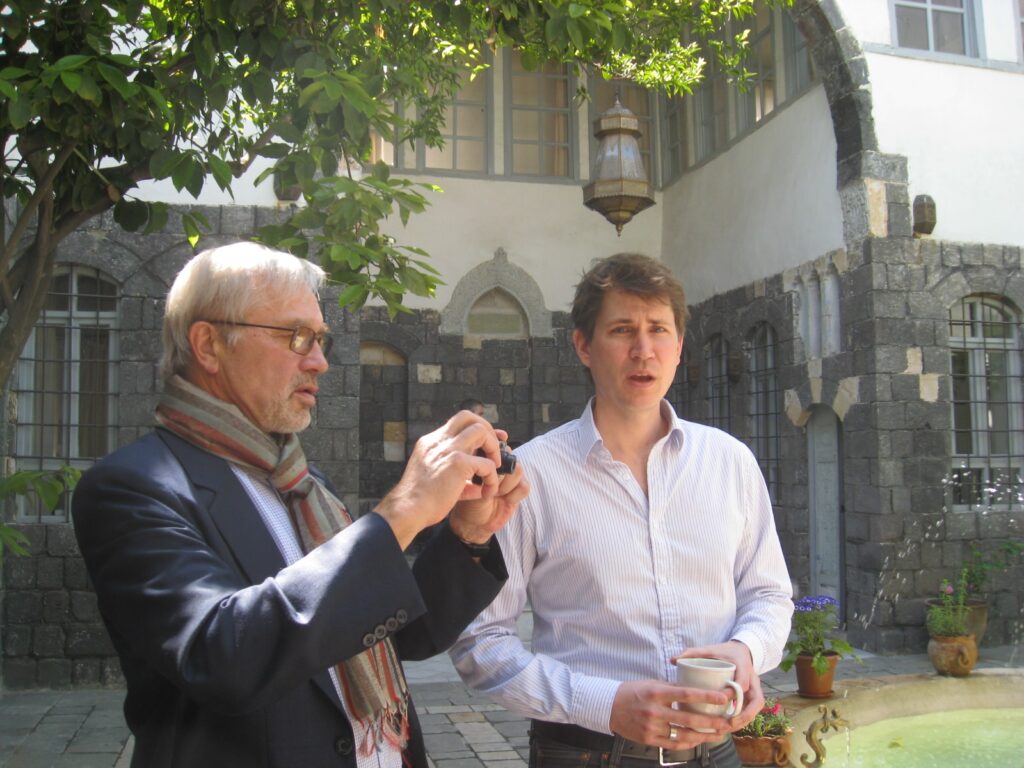
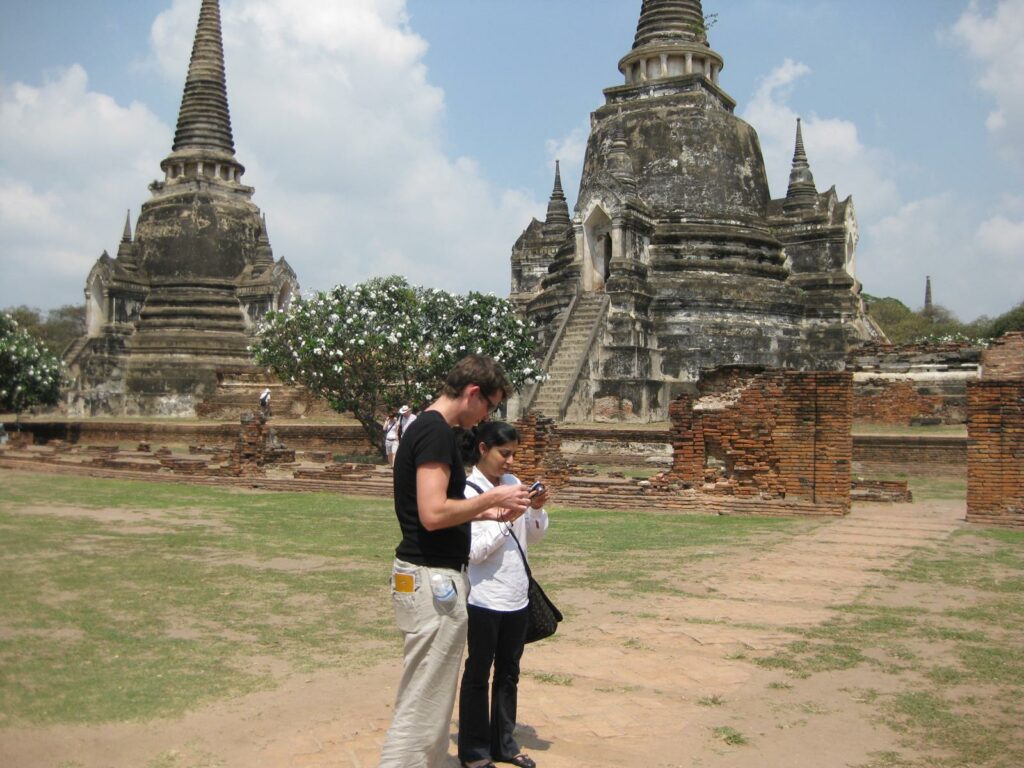
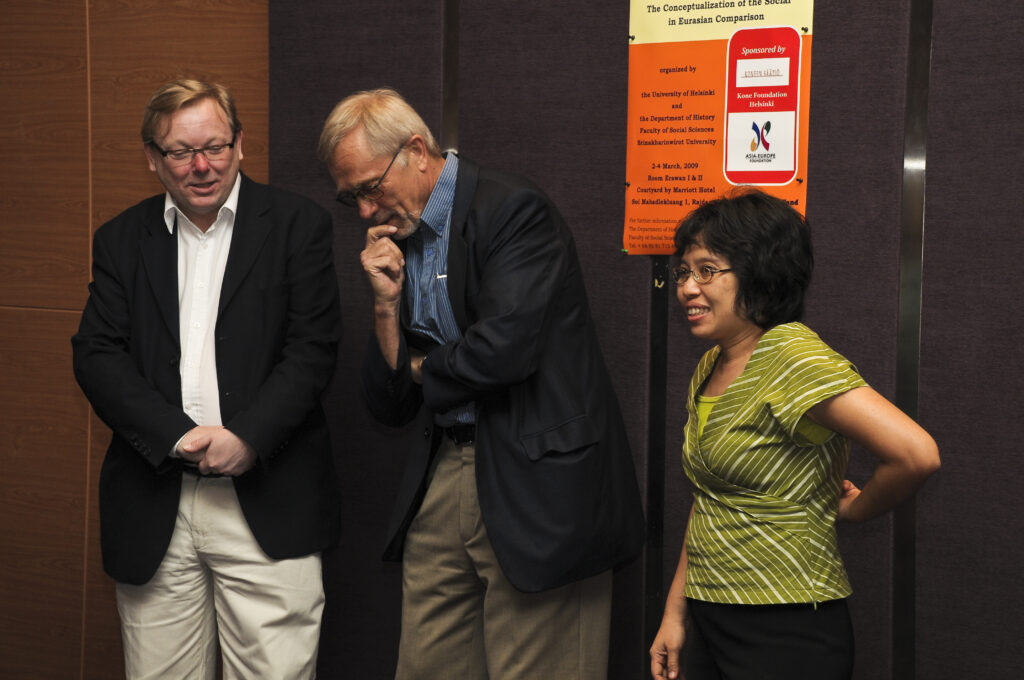
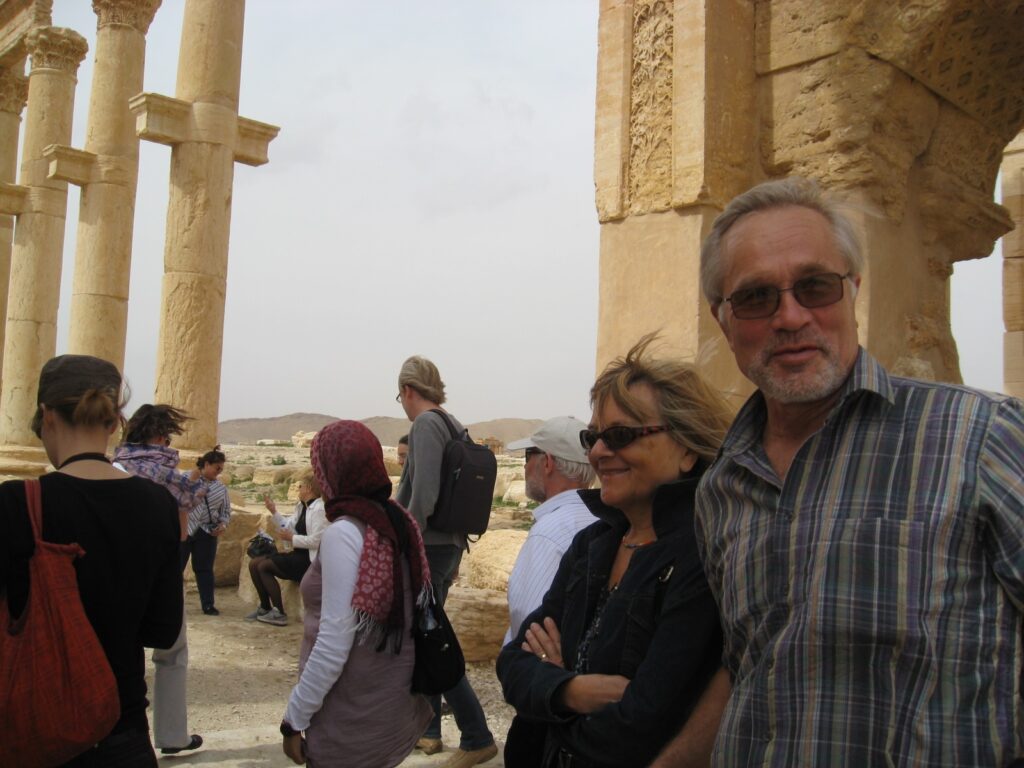
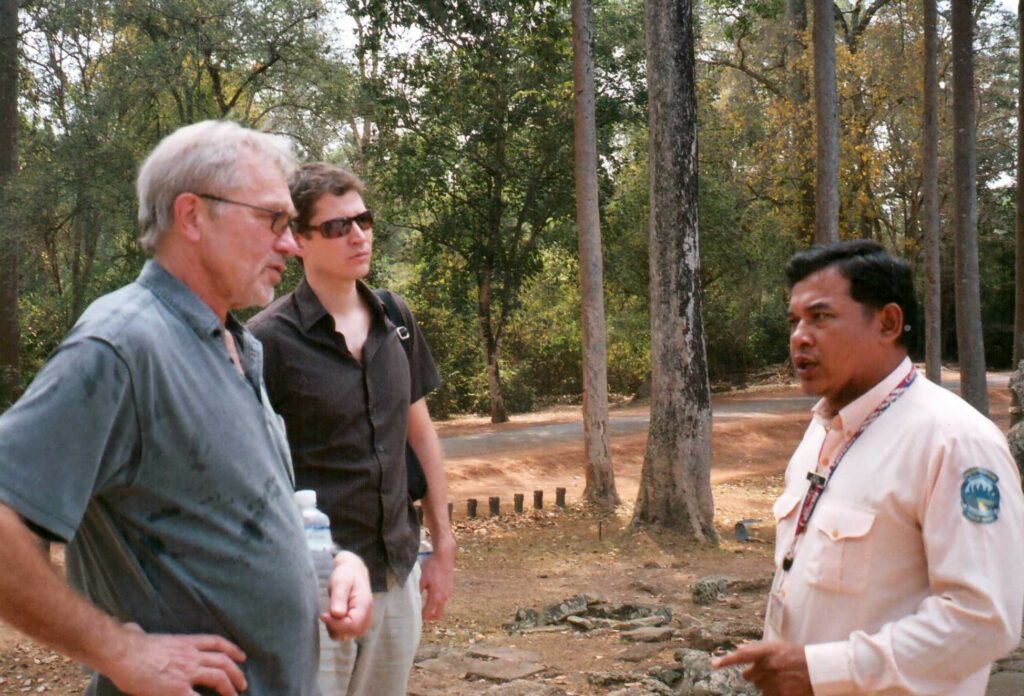
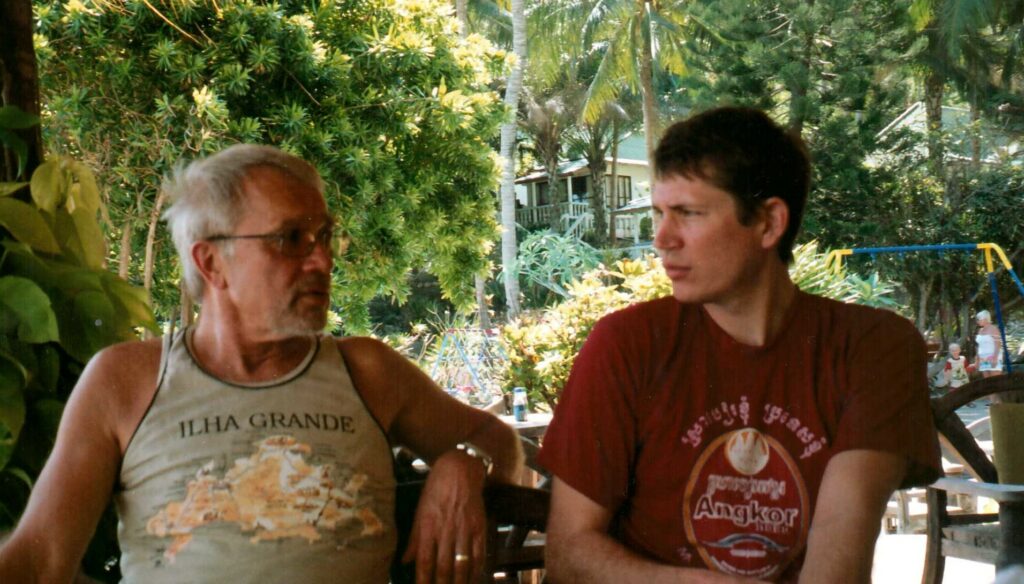
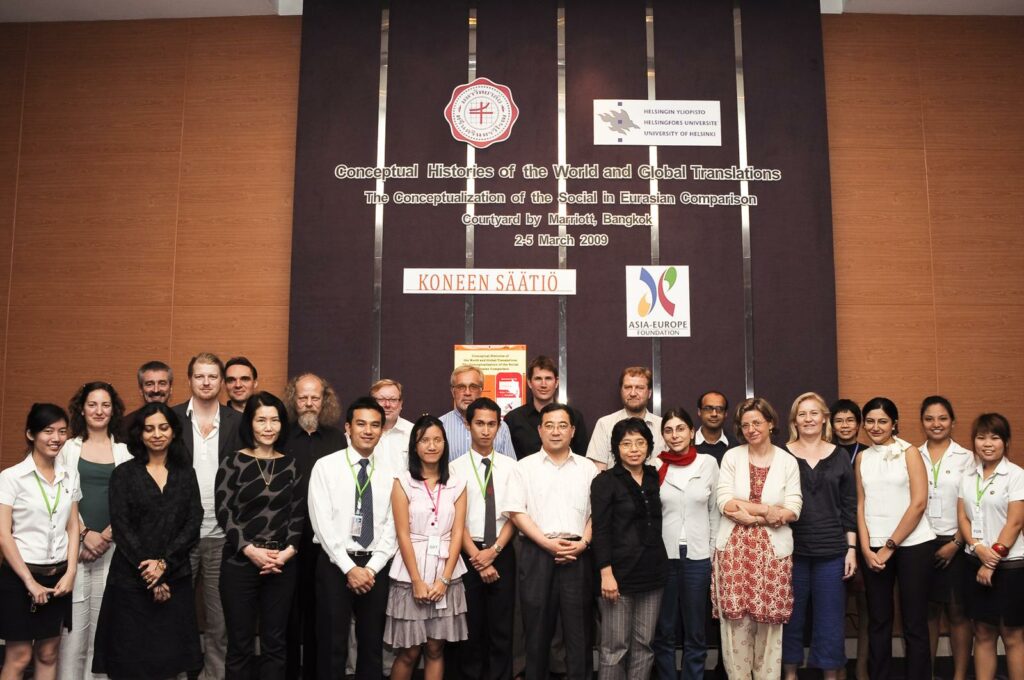
In 2010, Axel Fleisch joined the project as an expert in African linguistics. The African phase of the project began with a small preparatory meeting at the Stellenbosch Institute for Advanced Studies, STIAS, in February 2010. Riksbankens Jubileumsfond, RJ, sponsored the meeting. At the second meeting in Helsinki in May 2011 and the third meeting at Glenburn Lodge outside Johannesburg, both again sponsored by the Faculty of World Cultures/CENS, the contours of the research agenda became sharper. At several meetings at STIAS from November 2013 to March 2015, the volume Axel Fleisch and Rhiannon Stephens (ed), Doing Conceptual History in Africa. New York: Berghahn 2016 took shape.
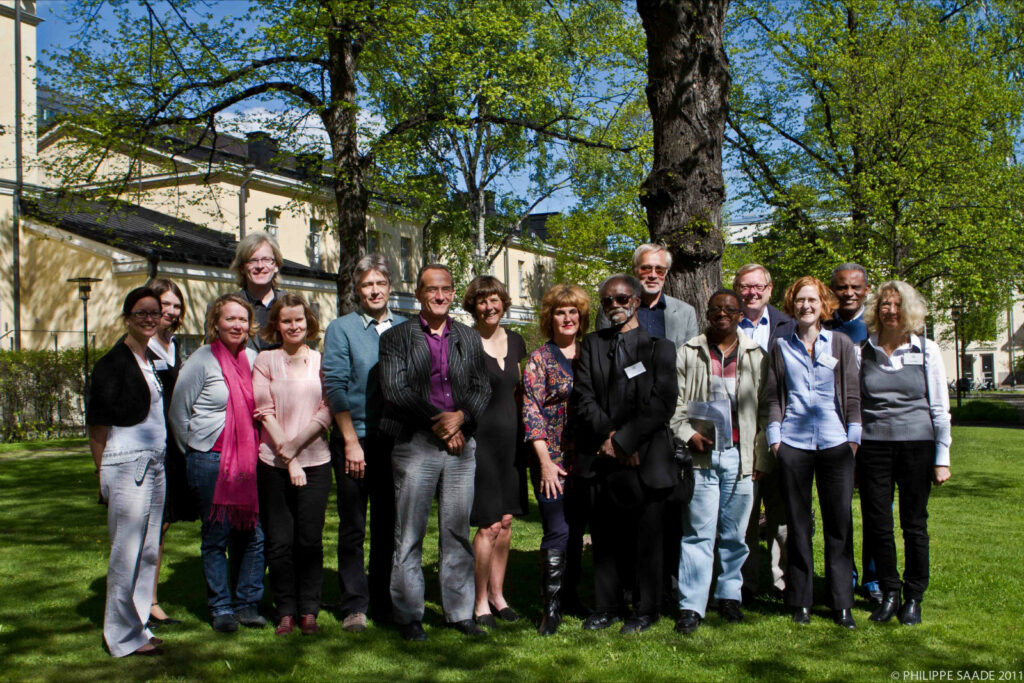
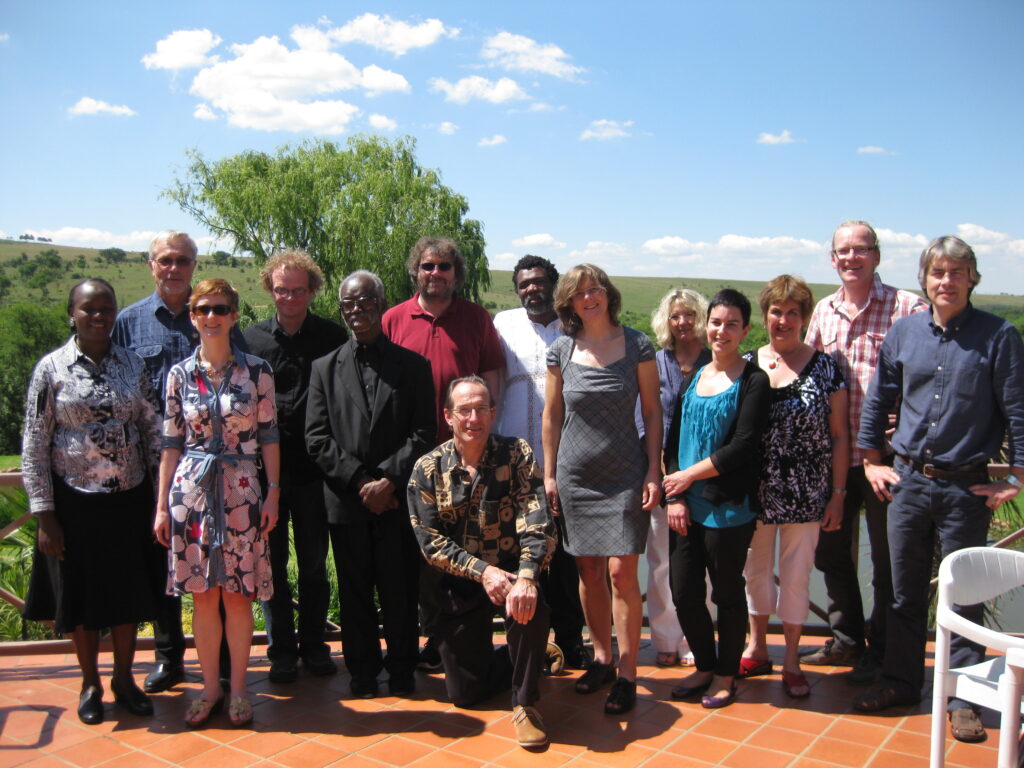
STIAS
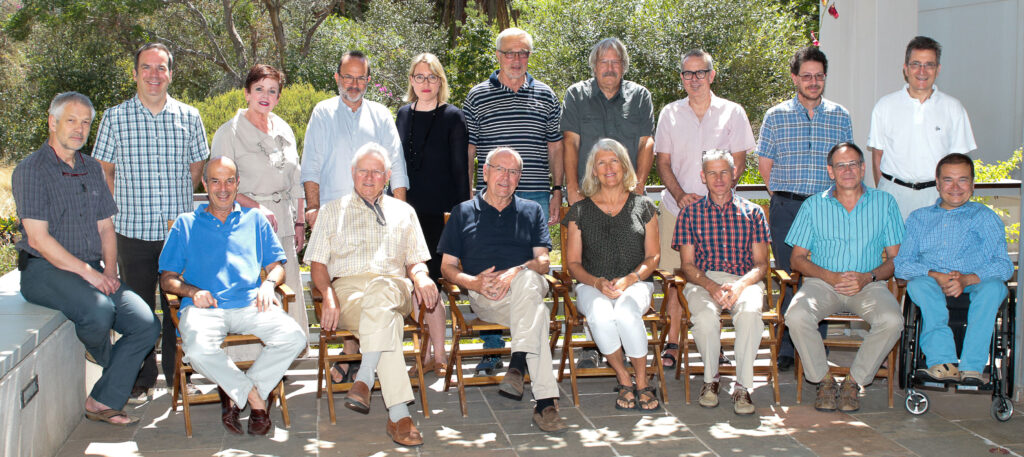
After the sponsors had left, Bo Stråth continued his work on a conceptual history of ujamaa and ubuntu. Several invitations as a fellow to the Stellenbosch Institute of Advanced Studies, STIAS, and the encouragement of its then director, Hendrik Geyer, were indispensable for bringing this work to an end. At STIAS, the environment was truly interdisciplinary, where inputs from several disciplines permeated the weekly seminar, conversations, and smaller meetings. Stråth was lucky to be with specialists in African history, culture, and politics, too, such as Christopher Hope, Tony Hopkins, John Noyes, and Richard Price. The work resulted in the volume Ujamaa and Ubuntu: Conceptual Histories for a Planetary Perspective.
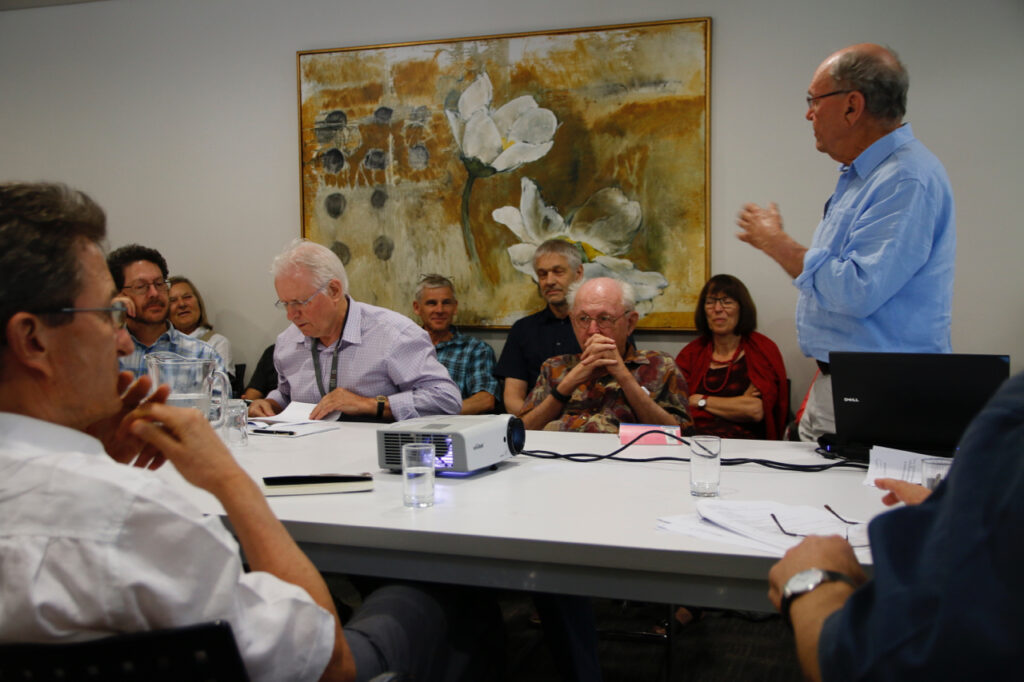
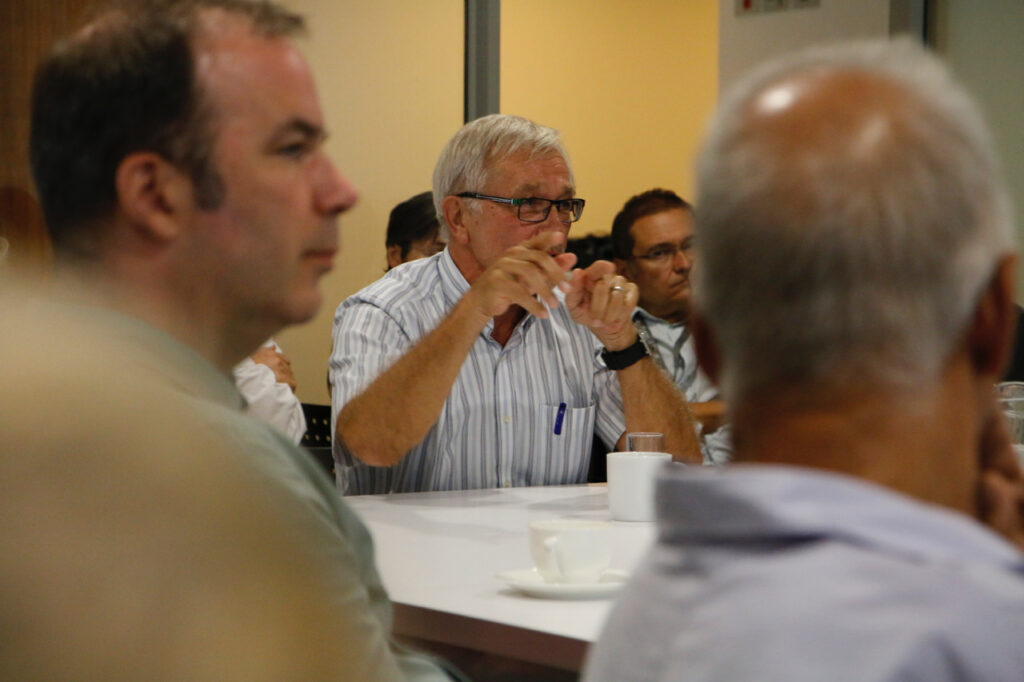
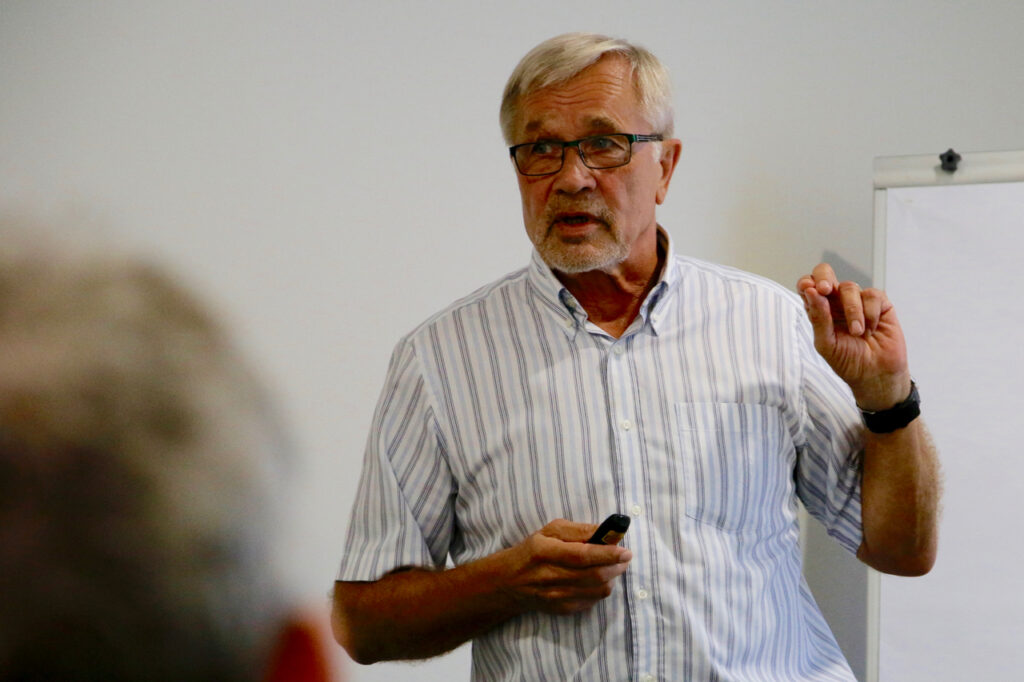
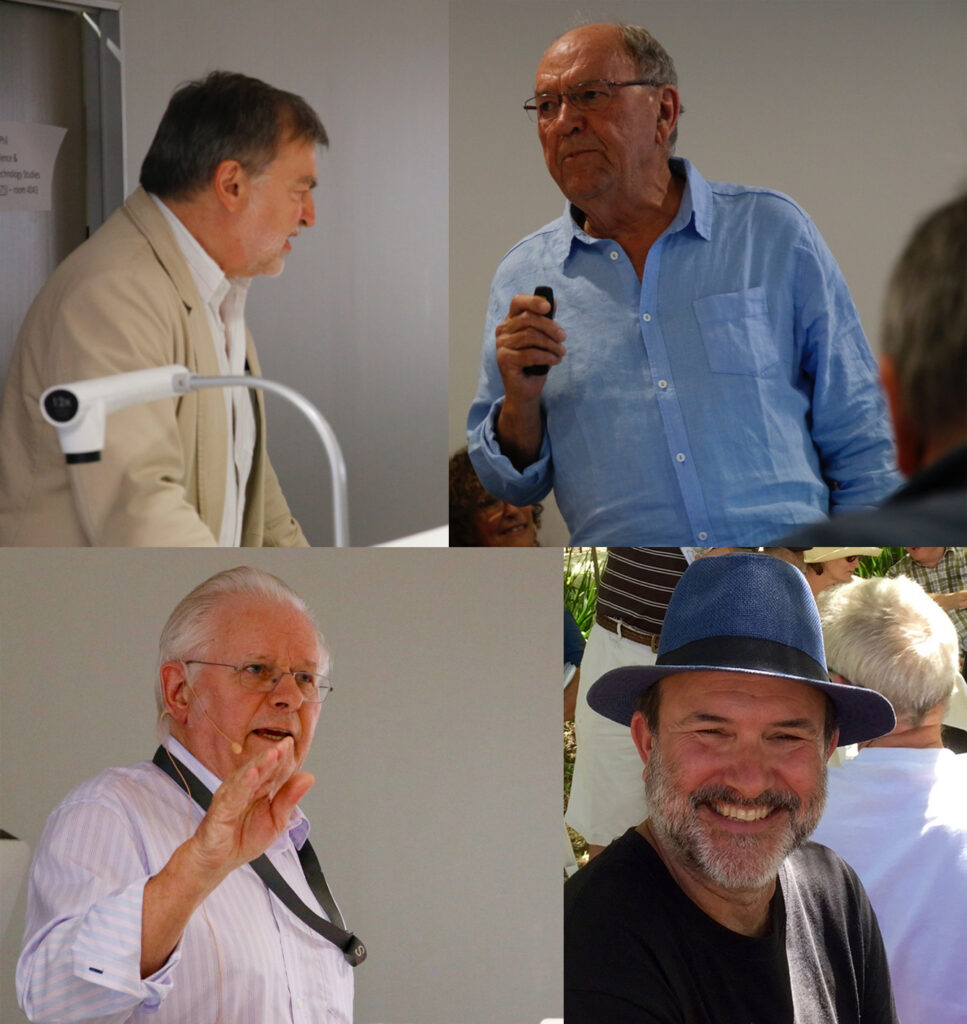
Stråth finished his work on the conceptual histories of ujamaa and ubuntu under the development of a planetary perspective as a meta-norm guiding the work. Concerning the planetary perspective, he was influenced by Dipesh Chakrabarty’s recent work, The Climate of History in a Planetary Age (2021). Chakrabarty was a frequent participant in the project meetings from the beginning, and his Provincializing Europe was a source of inspiration when the project was conceptualised. Stråth applied the planetary perspective in The Brandt Commission and the Multinationals 2023, and the just mentioned Ujamaa and Ubuntu. Conceptual Histories for a Planetary Perspective, which was published in 2024. See also his contribution to a Festschrift for Chakrabarty: “Provincializing for a Planetary Perspective.”
Theory, Method, Literature: Considerations at the Outset
The point of departure of the Eurasian part and Conceptafrica was the experienced need for new world history. However, such a new world history must be something other than just an updated version of the conventional Western narrative with a starting point and a goal, where everything is measured in terms of backwardness and progress. The most recent example in this vein is the globalisation narrative since the early 1990s. A new world history must integrate perspectives formulated in academic discourses in non-Western cultures.
The project’s target was the conceptualisations and imaginations of the social and the economic in various Asian and African languages. The semantics of these two spheres are conventionally departing from Western conceptualisations with an origin in the Antique World. This Western provenience is arguably problematic in a global world without a Western centre. Conversely, we cannot easily do away with this fact. Our solution was to explore the translations of the semantics around the social and the economic to various Asian and African languages. Thereby the crucial question was on what native etymological resources the translations draw. We wanted to establish a transnational epistemological horizon towards which European, Asian and African conceptualisations of the social and the economic are related equally. On this point, the project connected to the experiences and results in the previous part of the project on conceptualisations of the social and the economic in Asian languages.
The horizon we wanted to establish was not one where the Asian or African conceptualisations are played off against the European but one where European, Asian and African semantics are entangled in historical processes. A frequent argument in the postcolonial critique deals with a continuous Eurocentric agenda and that, therefore, full autonomy must be based on the interruption of communication under the development of indigenous discourse. The project wanted to challenge this argument and search for possibilities of a non-Eurocentric transcultural dialogue. However, recent approaches in postcolonial studies emphasise entanglement rather than rupture (Majumdar 2010). The project wanted to connect to and contribute to this debate between rupture and entanglement.
Is it then possible to compare concepts in various languages? Something is lost in every translation. Reinhart Koselleck once argued that comparing concepts would require a kind of neutral metalanguage (Koselleck 1991). He referred to the citizen example. If one translates the French citoyen into German, the term is Staatsbürger. However, according to Koselleck, these two concepts cannot be compared because they represent two very different histories. One could add on citizen and argue that citizen has a different history than citoyen and Staatsbürger. If we add the corresponding terms in the Scandinavian and Finnish languages – medborgare and kansalainen – the complexity increases even more. Medborgare means co-citizen and connotes a link to the bürgerliche civil society, whereas kansalainen is derived from a link to the state concept. However, one should not exaggerate these inter-Nordic differences since society and state are closely related, almost synonymous concepts. The prefix civil was added to society in the Scandinavian languages only during the incorporation of the neo-liberal language in the 1990s and was used to create the demarcation between state and society that was missing and bring society closer to the market concept. To this collection of European examples, one could compare Volk in German and folk in Scandinavian languages, peuple in French, populus in Italian, demos in Greek, kansa in Finnish, or folk or people in English and many other languages. They all represent very different realities and histories.
However, Koselleck later changed his resignation in front of an impossible undertaking. He turned the disadvantage into an advantage. The different histories represented by the different concepts are the source of a rich historical understanding based on comparing differences.
The project took this insight as its point of departure. The comparison is not only between concepts but also between histories. The utmost aim is not the concepts per se in a lexicographic approach but to discern the different histories the languages convey through an analytical focus on the key concepts and their counter-concepts and semantic fields. The research target is historical dynamics. Since there is no exact translation, the goal can only be approximate interpretations and converging understandings of differences.
Conceptual history, as outlined by Reinhart Koselleck, departs from the understanding that politics in democratic societies or in societies with a minimum of public debate require shared concepts and, at the same time, disagreement about the meaning of these concepts. The shared conceptualisation provides the arena of the political struggle, and the attempts to appropriate positions of interpretative power of the key concepts constitute the political process. Since history with the enlightenment philosophy and the French revolution got a direction and imaginations of a different past and a future that can become different through human agency, the core of the conceptual struggle has dealt with interpreting experiences and translating experiences into expectations. The constant tension between social critique and political crisis underpinned the search for political positions between experiences and expectations (Koselleck 1988).
There is a clear link from Koselleck’s to Michael Freeden’s approach to politics and ideologies with an emphasis on the conceptual, and where ideologies, rather than being long-term consistent and separated chains of thought, are seen as depositories or arsenals of arguments that can be collected and combined in various ways from various ideological origins contingent on the specific historical situations (Freeden 1996, 2005). Historical processes and politics are open and contingent; nothing is predetermined in its formulation. This focus on the conceptual struggle and the mutating shifts of the meaning of key terms in crucial historical moments, or the introduction of new concepts of different provenance, provided the project’s methodological approach. Our conceptual methodology also connected clearly to the Cambridge speech act school with Quentin Skinner as the protagonist. They began to rewrite the history of Western political thought by reconstructing the precise context and meanings of words and ideas in the past and showing how they had changed their shape and connotations over time, like chameleons, to adapt to new circumstances and new deeds (Skinner 1978, 1998 and 2008).
In the vein of Koselleck, Skinner and Freeden, we were not only interested in concepts as single constructs but as crucially informed by their proximity to other concepts that define, or decontest, them in different ways at different points of time and space. Concepts develop counter-concepts in semantic fields. The combination of, for instance, liberty, private property and personal initiative means something different than when liberty is connected to human welfare and social development, to use an example from a Western vocabulary.
A comparison of the conceptual situations or moments diachronically or synchronically will result in an understanding of continuities and discontinuities and translation dynamics. What are the relationships between translated concepts, and to what extent are they inscribed in similar semantic fields and metaphoric languages? From what metaphoric fields are key concepts derived, for instance, the social and economic fields? Biologic or mechanic metaphors, for instance? In what periods have conceptual shifts and mutations occurred, and to what extent and how have they been translated? What are the sequences in a comparative perspective? What transfer of words and meanings occurs under the development of counter concepts and relationships between symmetric and asymmetric concepts? Such and similar questions in a comparative perspective can show how concepts mutate with and travel between metaphoric languages and semantic fields. What similarities and differences in terms of interpretations of experiences and outlines of expectations are there between various cultures? What are the differences and similarities in styles of politics?
Reinhart Koselleck remarked on the impossibility of comparison across languages without a meta-language before the acceleration of a European academic network community in social sciences began. One can and should have many critical comments on the EU-financed research projects in social sciences, but one good thing they have in common. They have intensified communication across language borders and increased the mutual understanding of differences. Through rich comparisons in trans-European research projects, the academics know that citoyen is not Staatsbürger and know much about why it is so. The growing insight of difference and the attempts to develop a language to describe the differences and approximations has brought new important historical knowledge.
However, the aim of world history is much more complex than European history based on a comparison of the conceptualisation of society. The social, economic, political, democracy, progress, development, modernity, tradition, religion, civil, civilisation, culture, empire, and so on are all Western concepts. Although their translation between the European languages shows important differences, they are much more narrow to each other than to Chinese, Japanese, Indian and African languages, for instance. There is a Western bias in the conceptualisation of social life.
The challenge of the project on a new comparative conceptual world history under the keyword of global translations was searching for positive answers to Koselleck’s problem of comparability and translation but at an even more complicated level regarding linguistic differences. The problem in going beyond Europe is that, despite the European diversity, our conceptualisation of the political, the economic, the social, the religious, and so on, and the semantic fields, which this conceptualisation has built up, in many respects rely on a Greek and Roman origin, and this reliance makes communication across the diversity relatively easier than when we move beyond Europe. How are Western concepts like civilisation, culture, democracy, community, union, class, religion, salvation, utopia, and so on translated into Chinese, Indian, Swahili or other languages and vice versa? Is the communication only a monologue of Western values, or is there a potential for developing a more dialogical reflection on similarities and differences? Can the European experience of Europeanisation of understanding the differences (between e g citoyen and Staatsbürger) also be used and adopted globally? The challenge of this project was to answer these questions affirmatively.
The crucial question is how much the European or Western view can be relativised. Dipesh Chakrabarty in his postcolonial critique, argues that the former colonial peoples can also use enlightenment values like freedom of expression and critique against the colonizers (Chakrabarty 2001). Their appropriation and potential reinterpretation of enlightenment values is an excellent example of relativization. Europe might be the origin, but the interpretations and translations of the European experiences are externalized. In this process, the Europeans can only act as bystanders.
It is easy to agree with Chakrabarty’s view that colonialism produced a world image where it became “normal” to think of England as a rich country and India as a poor country. This situation has changed in the post-colonized world, although only partly. His argument that he and other historians of Asia and Africa must pay attention to the academic production of their European colleagues, who must not consider the scholarly production in Asia and Africa, is a serious critique.
How are genuinely Western metaphorical fields around conceptualisations of the political, the economic, the social, the religious, etc translated into non-Western languages? What domestic linguistic linkages are there? What etymologies and vice versa? These are the key questions that must be addressed.
References
Balibar, Etienne (2003). Europe: An ‘Unimagined’ Frontier of Democracy. Diacritics, 33.
Balibar, Etienne (2004) We, The People of Europe? Reflections on Transnational Community, Princeton, N J Princeton U P.
Benley, Jerry H. (2003). “World History and Grand Narrative.” In Writing World History, 1800-2000, ed. Eckhardt and Stuchtey Fuchs, Benedikt. Oxford: Oxford U P.
Chakrabarty, Dipesh. (2001). Provincialising Europe. Postcolonial Thought and Historical Difference. Princeton: Princeton U P.
Dirik, Arif. (2002). “History without a Center? Reflections on Eurocentrism.” In Across Cultural Borders: Historiography in Global Perspective, ed. Eckhardt and Stuchtey Fuchs, Benedikt. Lanham, Md; Oxford Rowman&Littlefield.
Dirik, Arif. (2003). “Confounding Metaphors, Inventions of the World: What is World History For?” In Writing World History, 1800-2000, ed. Eckhardt and Stuchtey Fuchs, Benedikt. Oxford: Oxford U P.
Freeden, Michael. (1996). Ideologies and Political Theory: A Conceptual Approach. Oxford: Clarendon Press.
Freeden, Michael. (2005). Liberal Languages. Princeton: NJ: Princeton UP.
Hunt, Lynn. (2002). “Where have all the theories gone?” Perspectives March.
Koselleck, Reinhart. (1988). Critique and Crisis: Enlightenment and the Pathogensis of Modern Society. Oxford: Berg.
Koselleck, Reinhart. (1991). “Drei bürgerliche Welten? Zur vergleichenden Semantik der bürgerlichen Gesellschaft in Deutschland, England und Frankreich.” In Bürger in der Gesellschaft der Neuzeit. Wirtschaft-Politik-Kultur, ed. Hans-Jürgen Puhle. Göttingen: V&R.
Majumdar, Rochona. (2010). Writing Postcolonial History. London and New York, Bloomsbury Academic.
Sachsenmaier, Dominic. (2007). “World History as Ecumenical History?” Journal of World History 18(4):465-489.
Skinner, Quentin (1978), The Foundations of Modern Political Thought. Cambridge: Cambridge UP
Skinner, Quentin (1998), Liberty before Liberalism. Cambridge: Cambridge U P 1998.
Skinner, Quentin (2008) “A Genealogy of the Modern State”. British Academy Lecture 13 May, 2008. Published in Proceedings of the British Academy 162 2009 pp 325-370.





































